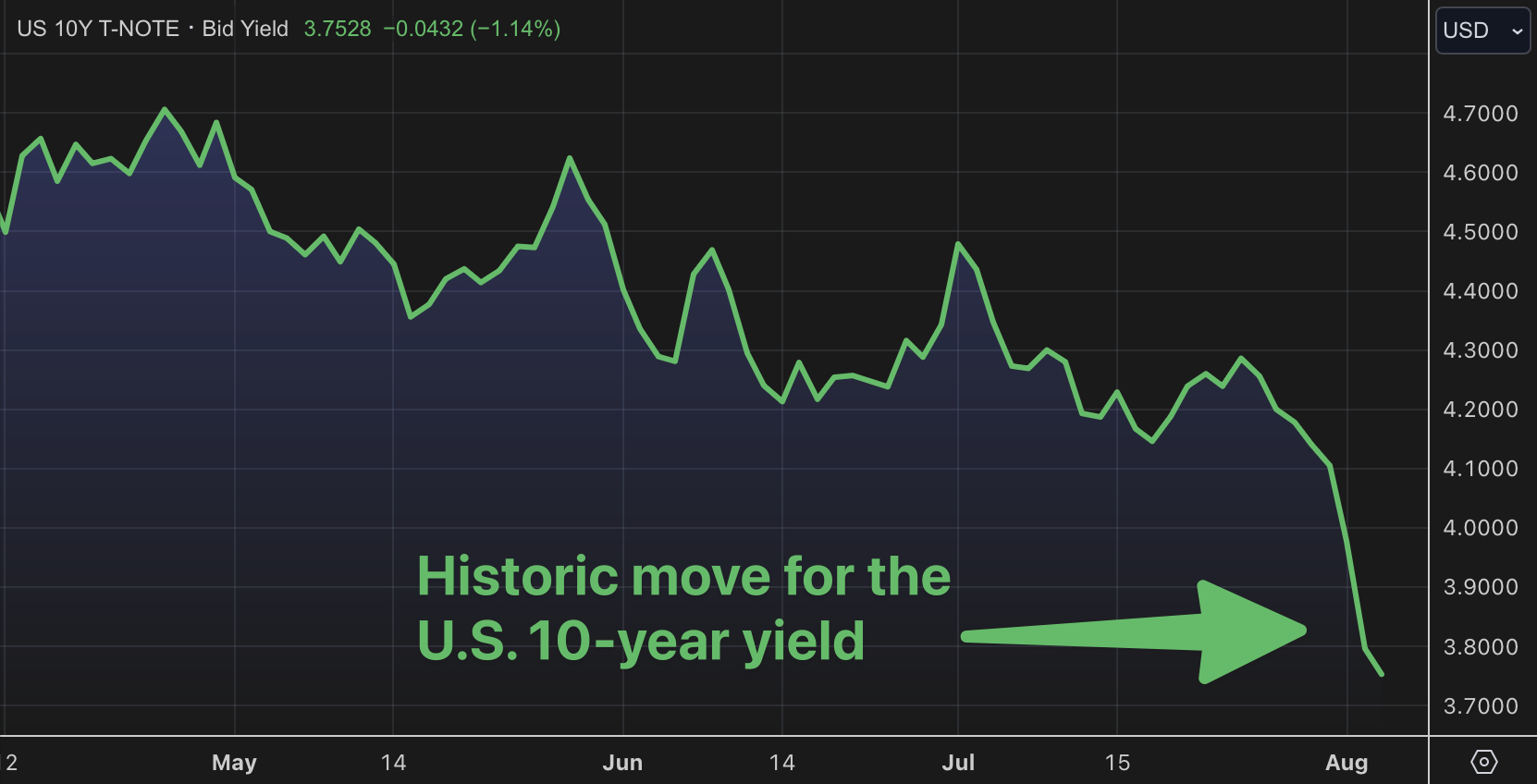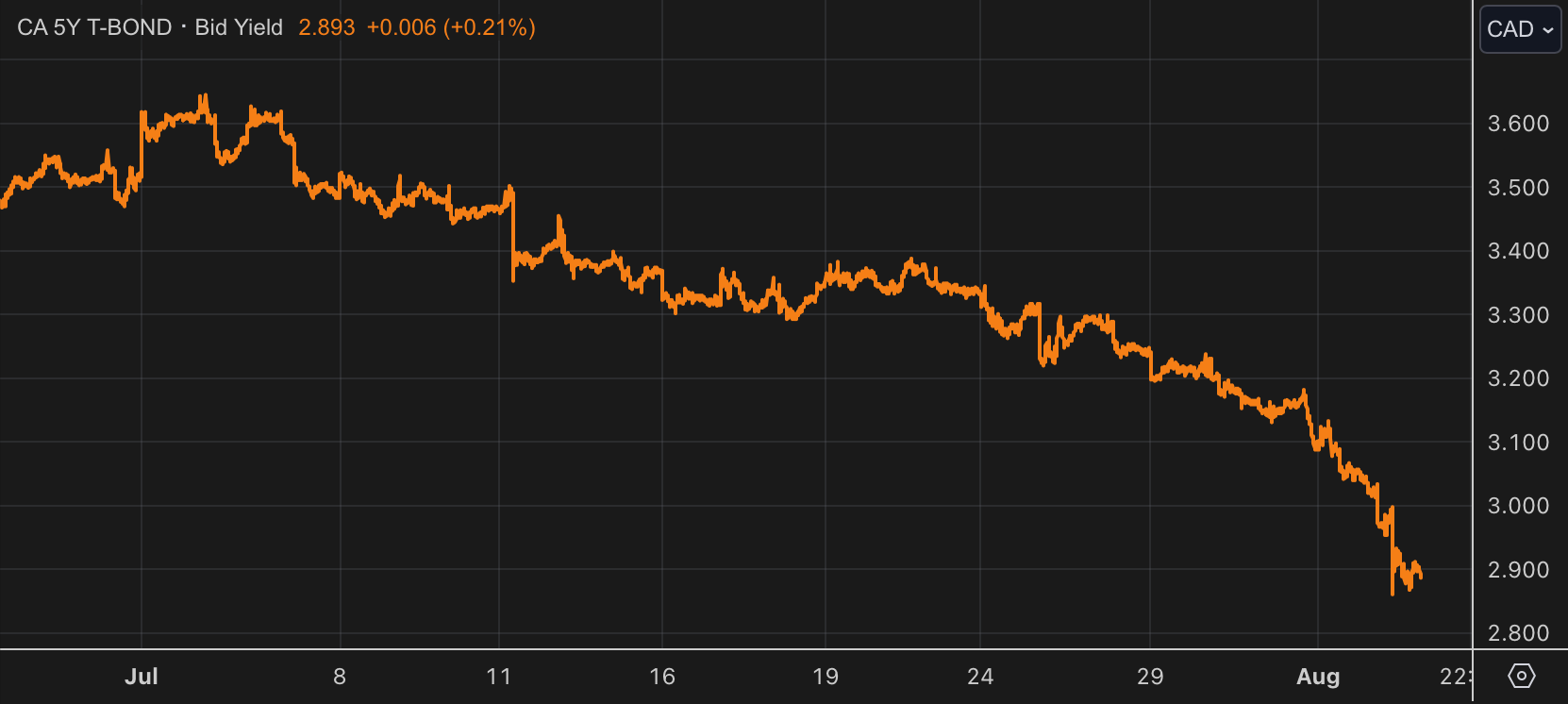Ever since mortgage rates leapfrogged into the 6s in 2023, refinance demand has been building. Much of that demand was never satisfied because borrowing costs were too high or qualifications were too tough.
Now, as if by financial magic, conditions are changing. Thanks to anticipated BoC cuts—count 'em, 75 bps worth by year-end—plus cooler inflation and a bump in unemployment rates, yields are discovering gravity. In fact, our go-to fixed-rate gauge, the 4-year swap, has already dipped a cool 169 bps from its peak.
Back to top






